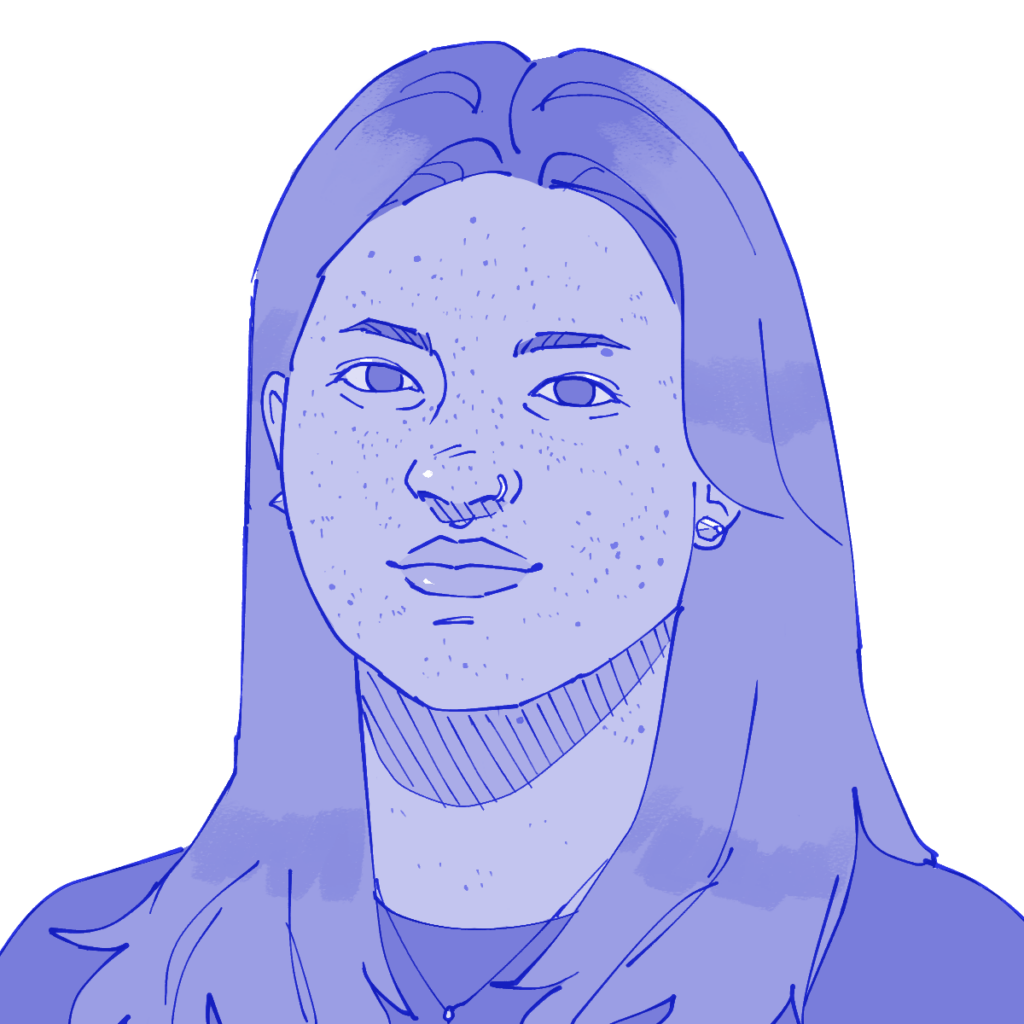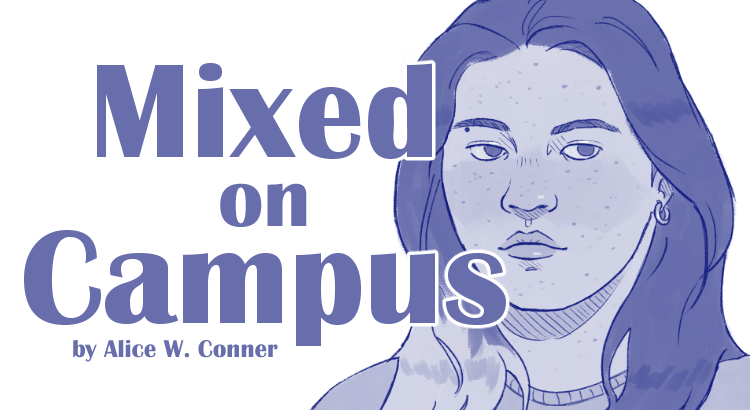
Name: Alice Conner
Mix: Japanese & White-American
Major & Year: Industrial Engineering; Junior
Q: How has being mixed affected your campus experience?
A: My racial identity and the racial/ethnic identities of other mixed people are often scrutinized by others. People choose to accept or not accept my racial identity based on when it is convenient for them. Constant scrutiny on my appearance and the validity of my experiences is alienating, exhausting, and psychologically distressing. How you look is not a choice. Before joining the student organization Mixed@Michigan, I did not have the vocabulary to defend myself and other mixed people. People did not listen to me until I educated myself, even if all I learned were the “proper” words to explain what I already knew was true. Mixed people should be heard even without statistics and well-spoken words.
Q: What do you wish more people knew about the mixed experience?
A: I believe a lot of the prejudice towards mixed people is a result of ignorance, which is why it’s so important for mixed people to be able to speak about their own struggles and experiences. I want people to understand that the mixed experience is a real lived experience and not just an interesting debate topic. I’m tired of hearing arguments on whether or not a mixed person is allowed to identify with or represent a specific racial identity based on the percentages of their racial makeup and opinions on what the person looks like. How a mixed person is perceived by others will depend on the mixed person, the person perceiving them, AND on the context of the situation. In the end, monoracial people do not have authority on how a mixed person chooses to identify.
+1: Mixed people are not buffers between different racial categories. People should not be measured and judged based on their perceived proximity to whiteness. Oppression is often discussed in binary terms (a person either experiences it or they don’t), but reality is not so easily categorized. Mixed people are used to this idea– they are good at tolerating contradiction and ambiguity.
Q: What is your proudest moment?
A: I’m very proud of this project. What I wanted to do with Mixed on Campus was provide other mixed people with the opportunity to speak up about things they might not have been able to before. I’m very grateful for all the responses I’ve received and the opportunity to use my platform to provide a voice to the mixed community at this university. Mixed@Michigan is a club in which we are bonded not through a specific racial or ethnic identity but because we have all experienced what it means to not fit into the monoracial paradigm of racial purity that society expects. We are able to support each other and provide a safe space free of judgement and questioning. There is so much diversity in experiences within the mixed identity and I wanted to be able to show that by providing other mixed people with the chance to tell their story.
Mixed on Campus was inspired by the Humans of New York project. The purpose of Mixed on Campus is to give a voice to this university’s mixed community and shed light on its members. Being mixed means to be multiracial, multiethnic, and/or a transnational adoptee. Through Mixed on Campus, mixed students have the opportunity to have their portrait drawn and share their experiences!



Leave a Reply
Be the First to Comment!